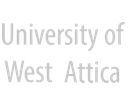A holistic, user-driven approach to the development of an innovative, open-access Educational Framework for six existing and emerging information-related literacies
Abstract
Abstract: Purpose - This article discusses a holistic, user-driven approach for the development of an innovative, open-access Educational Framework that includes six emerging information-related literacies. The Educational Framework of these literacies should be based on the structural support offered by the various Information Literacy models and is addressed to educators and librarians.
Design/methodology/approach: The proposed Educational Frameworks’ possible stakeholders and partners should plan for specific activities that will lead to the achievement of three main objectives: (a) the development of a freely available Information Literacy Training Package; (b) the training of educators and librarians, in the core skills of Information Literacy, as a horizontal goal and in new literacies as vertical goals; (c) the convergence in terms of strategy, expertise and infrastructure in Information Literacy initiatives, at a co-operative and even at a transnational level.
Expected impact: The open access dissemination of information-related literacies concerning: critical thinking regarding issues of equality and tackling the social injustices against marginalized groups in communities; making the most of peoples’ multiple interactions with digital technology and media; mobile tailored learning contents are cost effective and accessible for persons with learning disabilities; freedom of expression and information, empowerment of citizens to understand the functions of media and other information providers, to critically evaluate their content, and to make informed decisions as users and producers of information and media content; understanding and production of reliable news stories and scientific papers, based on data; dissemination and fostering of the Sustainable development goals, through the lenses of Information Literacy.
Originality/value: The proposed Educational Framework is a conceptually, strategically, technologically and educationally pioneering endeavor in answering specific urgent demands of the current Information and Knowledge Society.
Keywords
References
White, Robert E., and Karyn Cooper. "What is critical literacy?" Democracy and Its Discontents. Brill Sense, 2015. 21-35.
Luke, Allan. "Critical literacy: Foundational notes." Theory into practice 51.1 (2012): 4-11.
DeVoogd, G. L., & McLaughlin, M. (2005). Critical literacy: Enhancing students’ comprehension of text (pp. 5-10). New York, NY: Scholastic Publisher.
King, Jennifer Ann. "Critical Literacy for Linguistically Diverse Students." (2015).
JISC. (2014). Developing digital literacies. https://www.jisc.ac.uk/full-guide/developing-digital-literacies# (Accessed May 17, 2020)
Qualification Specification for the BCS Entry Level Award in Digital Skills (ITQ) (Entry 3) Version 3.2 December 2019 - https://www.bcs.org/media/1633/digital-skills-specification.pdf (Accessed May 17, 2020)
Martin, A. (2005). DigEuLit – a European Framework for Digital Literacy: a Progress Report. Journal of eLiteracy, 2, 130–136 http://citeseerx.ist.psu.edu/viewdoc/download?doi=10.1.1.469.1923&rep=rep1&type=pdf (Accessed May 17, 2020)
Hsinyi Peng , Yi‐Ju Su , Chien Chou & Chin‐Chung Tsai (2009) Ubiquitous knowledge construction: mobile learning re‐defined and a conceptual framework, Innovations in Education and Teaching International, 46:2, 171-183, DOI: 10.1080/14703290902843828
Yu, Y., Wang, S., & Emerson Haagen, L. (2010). Mobile Learning as a Catalyst to Global Citizenship Education in China. https://www.gcedclearinghouse.org/sites/default/files/resources/190150eng.pdf (Accessed May 17, 2020)
Gera, R., Chadha, P., & Ahuja, V. (2020). Mobile app usage and adoption: a literature review. International Journal of Electronic Business, 15(2), 160–195. https://doi.org/10.1504/IJEB.2020.106546 (Accessed May 17, 2020)
Shah, U. E. M., & Chiew, T. K. (2019). A Systematic Literature Review of the Pain Management Mobile Applications: Toward Building a Conceptual Model. IEEE Access, 7, 131512–131526. https://doi.org/10.1109/ACCESS.2019.2940772 (Accessed May 17, 2020)
Framework for Information Literacy for Higher Education, American Library Association, February 9, 2015. http://www.ala.org/acrl/standards/ilframework (Accessed May 12, 2020) Document ID: b910a6c4-6c8a-0d44-7dbc-a5dcbd509e3f
West, M., & Vosloo, S. (n.d.). UNESCO policy guidelines for mobile learning. UNESCO. https://unesdoc.unesco.org/ark:/48223/pf0000219641 (Accessed May 17, 2020) (Accessed May 12, 2020)
Ariew, S., Jacobs, S., Burress, T. G., & Mann, E. Z. (2019). Information Literacy and Data Literacy as Critical Thinking. https://digital.usfsp.edu/cctc/2019/full_schedule/26/ (Accessed May 17, 2020)
Wan, N. (2011). Why digital literacy is important for science teaching and learning. Teaching Science: The Journal of the Australian Science Teachers Association, 57(4), 26–32. http://www.curriculum.edu.au/leader/why_digital_literacy_is_important_for_science_teac,34913.html?issueID=12610 (Accessed May 17, 2020)
Reeves, T. D., & Chiang, J.-L. (2019). Effects of an asynchronous online data literacy intervention on pre-service and in-service educators’ beliefs, self-efficacy, and practices. Computers & Education, 136, 13–33. https://doi.org/https://doi.org/10.1016/j.compedu.2019.03.004 (Accessed May 17, 2020)
IFLA -- IFLA Media and Information Literacy Recommendations. (n.d.). Retrieved May 12, 2020, from https://www.ifla.org/publications/ifla-media-and-information-literacy-recommendations (Accessed May 17, 2020)
United Nations Educational, Scientific and Cultural Organization, Grizzle, A., Tuazon, R., Akyempong, K., & Cheung, C. K. (n.d.). Media and information literacy curriculum for teachers. UNESCO. https://unesdoc.unesco.org/ark:/48223/pf0000192971 (Accessed May 17, 2020)
Media and Information Literacy – UNESCO IITE. (n.d.). Retrieved May 17, 2020, from https://iite.unesco.org/mil/
Brundtland, Gro Harlem, et al. "Our common future." New York (1987): 8.
Desa, U. N. "Transforming our world: The 2030 agenda for sustainable development." (2016).
Melles, G., & Paixao-Barradas, S. (2019). Sustainable Design Literacy: Developing and Piloting Sulitest Design Module BT - Research into Design for a Connected World (A. Chakrabarti (Ed.); pp. 539–549). Springer Singapore. https://link.springer.com/chapter/10.1007/978-981-13-5974-3_47 (Accessed May 17, 2020)
Schunk, Dale H. Learning theories an educational perspective sixth edition. Pearson, 2012.
Mayes, T. and de Freitas, S. (2004) Review of e-learning theories, frameworks and models. JISC e-learning models study report. The Joint Information Systems Committee, London, UK.
DOI: 10.26265/jiim.v4i2.4417






